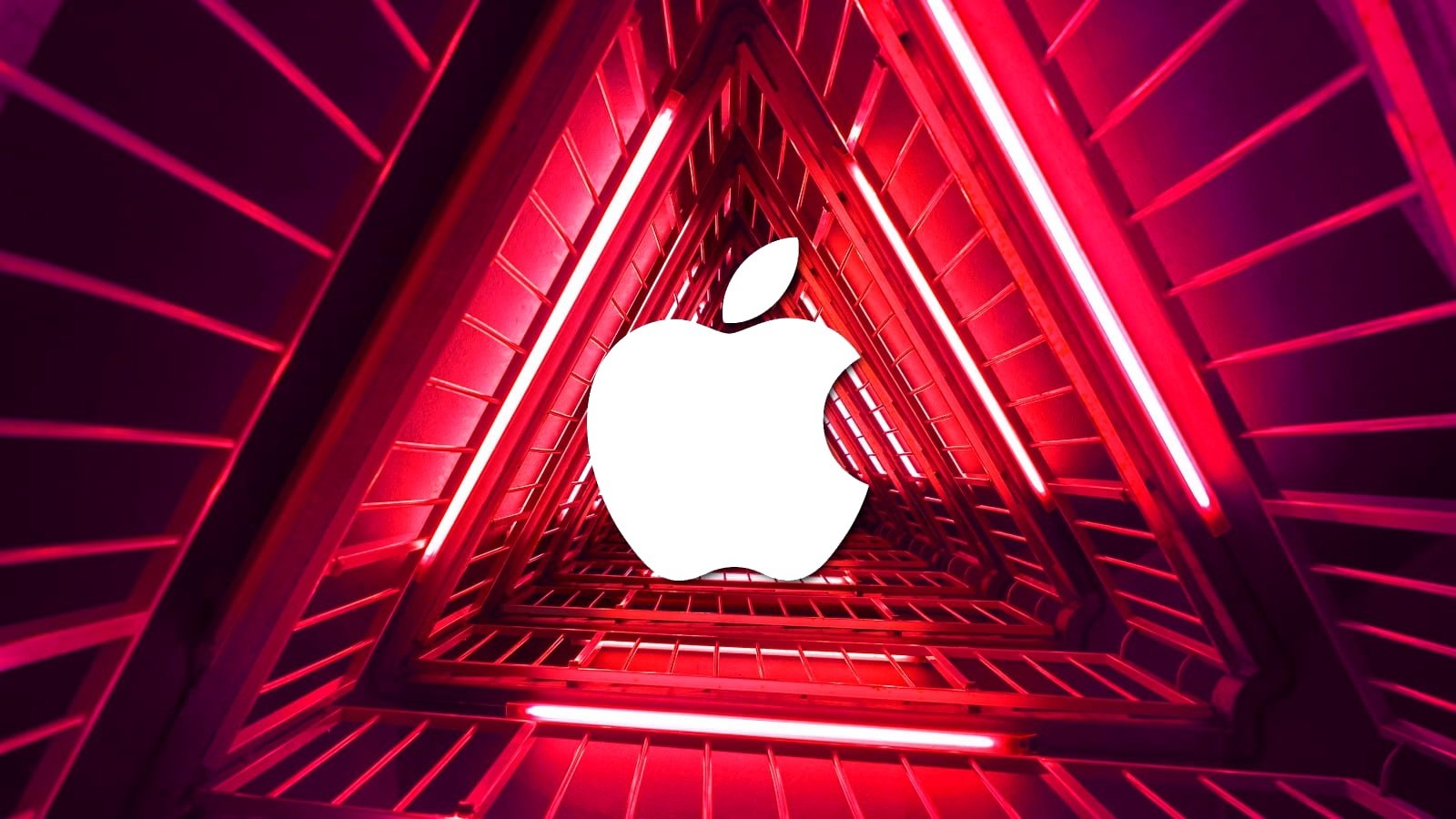Paypal vs Venmo security: Which is more secure?

PayPal vs Venmo: Which is more secure? Choosing an online payment service isn’t just about convenience. Whether you’re paying for online shopping or accepting payments from clients, you should know whether PayPal or Venmo is more secure. People often ask us: Is PayPal safe? (And is Venmo safe?) In this guide, we’ve answered these critical payment app security questions.
Our PayPal vs. Venmo security comparison examines key payment app security features, including digital wallet encryption, peer-to-peer payment security, buyer and seller protection, two-factor authentication, and support for phishing-resistant login methods, such as PayPal Passkeys. We’ll also briefly touch on Zelle security and Cash App security to see how these services compare.
In 2025, online payment security needs to be a priority due to the explosion in scams, phishing, fraud, and identity theft. Unfortunately, some payment apps fall short in protecting against scams. Keep reading to find the most secure money transfer app and to see our tips, tricks, and the best settings to protect your payments.
PayPal vs Venmo: Feature-by-feature security breakdown
When selecting a secure digital wallet (either as a consumer or a business owner wanting to receive payments), it is vital to choose a service with leading-edge security features. We advise always checking for the features listed below before using any app to hold or exchange funds.
To help you out, we have included the features to look for and information about whether PayPal and Venmo have each of these features. This will make it much easier for you to select the best payment application for your needs.
1. Strong Two-Factor Authentication (2FA)
Securing your money is important, which is why we advise that you use an app with reliable two-factor authentication. This will ensure that you need more than just a password to log in to your app and make transactions. This provides an important layer of protection against brute force attacks and hacking that can occur following a successful phishing attempt.
When comparing online payment apps, we advise sticking to platforms that support robust forms of 2FA, such as:
- Authenticator apps (like Google Authenticator)
- SMS codes (sent to a verified phone)
- Biometric login (such as fingerprint or iris scan)
Of these, biometric authentication is the most secure option. This is because it requires not only the device, but also your physical presence. If a payment app skips 2FA entirely, we strongly advise against using it. When finances are at stake, a password alone is not sufficient protection.
PayPal supports SMS-based 2FA, authenticator apps, and now offers passkey support for biometric login. Venmo supports SMS-based 2FA for added account security, but lacks options for authenticator apps or biometric-only login.
2. Real-time transaction alerts
The best payment apps will send you a push notification every time you attempt to log in, make a transaction, or try to make any changes to your account details. This serves as the first line of defense by alerting you whenever there is activity associated with your account.
This type of real-time activity status enables you to keep track of your finances and instantly alerts you to any suspicious behavior. As a result, you can act quickly to lock your account and dispute any charges that you believe were made fraudulently.
PayPal provides push notifications for transactions and account activity. Venmo sends real-time alerts for transactions and login attempts (when enabled).
3. Clear fraud and dispute resolution policies
Your payment app must have transparent policies for fraud and dispute resolution. If you fall victim to a scam or unauthorized access, there should be a clear process in place to address the issue. The best apps openly outline their fraud protection guarantees and how you can report an incident. This makes it easier to act in the event of fraud. If the platform doesn’t clearly promise to support you in cases of fraud, using it could put your money at serious risk.
PayPal offers detailed buyer and seller protection programs with a formal dispute resolution process. However, Venmo only offers limited purchase protection for eligible business profiles. Personal transactions are not covered.
4. Payment reversal options for mistakes
When managing your cash through an app, it is possible to make errors. If you have ever sent money to the wrong person, you know how easy this can be. The best payment apps make your life easier by offering safeguards against sending funds to lookalike usernames or fake accounts.
We recommend checking for features like payment reversal options, unique QR codes, verified profiles, and confirmation prompts – all of which help you spot an error before finalizing a transaction. These simple checks can stop a small typo from turning into a costly mistake.
PayPal lets you request a refund or file a dispute, but it cannot reverse personal payments automatically. Unfortunately, Venmo does not support reversing personal payments unless the recipient agrees to return the money.
5. Account access controls and session management
Top-tier payment apps let you monitor and manage all logged-in devices. This allows you to track your account access to check for suspicious activity. If anything seems suspicious, you can immediately disconnect unfamiliar devices. Some apps also allow you to log out remotely and reset your credentials from another device, which is handy if you lose a device or suffer theft and want to revoke access from it.
PayPal allows you to review and log out of active sessions on different devices. Venmo does not currently let users manage active device sessions through its app.
6. Data encryption at all stages
It is critical that payment apps use strong end-to-end encryption to protect your financial data in transit and while it is stored. We prefer platforms that are transparent about their encryption standards (eg, TLS for data in transit and robust AES-256 encryption for data at rest).
PayPal uses industry-standard TLS encryption in transit and AES-256 encryption for data at rest. Venmo also uses TLS encryption for data in transit and applies encryption to stored data, though specific standards are not disclosed.
7. Transparent privacy policy
Purchase information can provide deep insights into your habits and relative spending power. This type of information enables businesses to create detailed profiles, which is why it is crucial to understand how a payment provider might utilize your data.
We recommend checking what kind of data each app collects and who it shares it with. A secure payment app should limit data sharing with third parties, especially for marketing or tracking purposes. Minimal data sharing by default is preferable, but it’s also worth checking whether you can opt out of profiling.
PayPal discloses its data usage and sharing practices and gives users options to manage privacy preferences. Venmo’s privacy policy is available online, and users can manually adjust their visibility settings and limit data sharing.
8. Built-in spending limits and transfer locks
These budgeting features provide you with better control over your spending and help ensure you have sufficient funds for essentials like rent and bills. Some apps allow you to set daily, weekly, or per-transaction limits, which can help with budgeting and also reduce your exposure to theft in the event of fraud or scams.
Others also let you lock outgoing payments unless they are verified through biometric ID, which adds an additional layer of protection to your spending. These types of usability features may seem small, but they can add significant value for discerning savers and individuals seeking extra peace of mind.
PayPal allows users to set sending limits and restrict certain transfers based on verification level. Venmo also sets daily and weekly limits for transfers, but does not offer biometric locks on outgoing transactions.
9. App-level PINs and biometric locks
A good payment app should protect you from unauthorized access or transactions even if your phone is unlocked. This is because the payment app should have its own PIN or biometric lock.
This ensures that no one can launch your app or access your funds by grabbing your phone before it locks. This offers protection in social situations or if someone grabs your phone before the screen locks.
PayPal supports fingerprint and Face ID for login on mobile, and can be locked separately from your phone. Venmo also supports app-level Face ID or fingerprint lock for added access protection.
10. Customer support
It’s important to know that if something goes wrong, you can easily contact your payment app provider to make a complaint or ask for your account to be frozen. We recommend sticking to apps that offer 24/7 live support with human agents, in-app chat, and direct fraud hotlines. Fast response times can mean the difference between recovering stolen money and losing it permanently, so stick with providers that offer world-class support.
PayPal offers 24/7 support with human agents, in-app chat, and dedicated fraud hotlines. Venmo offers support via chat and email, but does not operate 24/7 and does not provide live phone assistance.
Paypal vs Venmo: Which is more secure?
In this security battle between PayPal vs Venmo, we found that PayPal offers stronger protections overall. This includes better security features for business transactions and scam recovery.
Venmo is still suitable for casual users who need to make quick peer-to-peer payments (just be sure to adjust the settings to get the best security available!)
Whichever payment provider you choose, make sure to secure your account using 2FA, always watch for scams, and consider linking a credit card instead of a debit card for better fraud protection.
PayPal, Venmo, Zelle, and CashApp security compared
If you are in a hurry, you can use the table below to compare four of the leading digital wallet apps using the most important criteria. Use this table to compare PayPal vs Veno security, Zelle security, and CashApp security.
| Feature | PayPal | Venmo | Zelle | Cash App |
|---|---|---|---|---|
| Two-factor authentication | Yes | Yes | Yes | Yes |
| Scam and fraud protection | Yes | No | No | Limited. Cash App has limited protection via its support, but no formal buyer protection unless using Cash App Pay with a verified merchant. |
| Encrypted transactions | Yes. (Uses TLS encryption for data in transit.) | Yes. (Uses TLS encryption for data in transit.) | Yes. (Uses TLS encryption for data in transit.) | Yes. (Uses TLS encryption for data in transit.) |
| Ability to link cards | Yes. Credit, debit, and prepaid cards are supported. | Yes. Credit and debit card support. | No. Zelle requires a linked bank account – no direct card linking. | Yes. Supports linking debit and credit cards. |
| Can be used without linking a bank account | Yes. You can use PayPal with just a linked card or by using the funds stored in your PayPal account. | No. You must link a bank account or debit card to send or cash out. | No. Requires a US bank account for use. | Partially. You can receive funds and use money from your Venmo account balance or a linked card. However, full functionality – including cashing out or transferring to your bank – requires linking a bank account. |
How to stay safe from scams on PayPal and Venmo
Now that you know which security features are available with PayPal, Venmo, and other popular digital payment wallets, you are in a good position to pick the best application for your needs.
Whether you prefer PayPal or Venmo, you also need to understand how to stay safe from scams. To help you out, we have included tips and tricks to protect yourself against well-known payment app scams.
- Only send money to people you know
- Never pay for goods/services as “friends and family” (on PayPal)
- Double-check usernames before sending money (esp. on Venmo)
- Always look out for phishing emails or text messages pretending to be from PayPal/Venmo
- Enable two-factor authentication
- Don’t leave large balances sitting in the app
Related:
Venmo vs PayPal for Business
If you are a small business owner looking for the most reliable payment processing app, you’re probably wondering which is better: Venmo vs PayPal for business? Overall, we recommend PayPal for business transactions due to its stronger seller protection and built-in dispute resolution system for business accounts.
PayPal also includes other key benefits for businesses:
- PayPal is PCI-compliant, which means it meets the security standards set by the Payment Card Industry. This ensures that the app conforms to rigorous security standards when it comes to protecting your card data during transactions.
- PayPal supports invoicing, shipping confirmation, and tax documentation.
- PayPal supports international payments.
While Venmo offers Business Profiles, its protections and features are far more limited, and several key tools listed above are missing entirely. For this reason, we strongly recommend PayPal (not Venmo) for anybody running a business.
How to adjust your Venmo social feed privacy settings
If you are a Venmo user, it is important to understand how the social feed affects your privacy. By default, Venmo displays your transactions in a public feed. Believe it or not, this displays who you paid, when, and sometimes even what for.
A visible timeline might be useful for your own records, and occasionally for friends checking if a payment went through on a certain date (without needing to bother you by asking for evidence). However, unless this type of timeline is restricted to family, friends, or selected contacts, it can create serious privacy risks.
The good news is that Venmo doesn’t show exact amounts. However, this kind of visibility can still create a risk of profiling, allowing others to build a picture of your habits, payment connections, relationships, and routines.
In the wrong hands, your transaction data could be exploited to engage in social engineering (including phishing) and targeted scams. That is why we strongly recommend updating your Venmo privacy settings to limit who can view your transaction history.
Here’s how to change your Venmo social feed privacy settings:
- Open the Venmo app and tap the menu icon (three lines)
- Go to Settings
- Tap Privacy
- Set your default privacy to Private
- Tap Past Transactions and choose Change All to Private
- Finally, toggle “Friends List” to private to hide your contacts from other Venmo users
What is PayPal Passkey Support? Why is it better than Venmo?
A passkey is a phishing-resistant login that leverages something better than a password or SMS code to provide you with access.
The benefit of using a biometric passkey, such as the one supported by PayPal, is that it requires both your physical presence and access to your device. This means you must either enter a device code or use biometric authentication, such as Face ID or Touch ID, to log in.
PayPal has typically been ahead of other digital payment applications in terms of passkey compatibility. It was one of the first major payment apps to adopt passkeys, having introduced them in October 2022.
How to enable Passkey support on PayPal:
- Open the PayPal app (or go to the official PayPal website in a supported browser like Safari or Chrome).
- Log in to your account using your existing credentials.
- Go to Settings by tapping your profile icon in the top right corner.
- Select “Login and Security.”
- Scroll down and tap “Passkeys.”
- Follow the on-screen instructions to set up a passkey using Face ID, Touch ID, or your device passcode.
- Confirm your identity and save your passkey when prompted.
Once enabled, you’ll be able to sign in to PayPal using your face, fingerprint, or device lock (on supported devices and browsers). This reduces the risk of phishing attacks because neither your password nor your device alone is enough to access your account.
Does Venmo support passkeys?
No. Venmo has not yet introduced passkey support for logins. Users can enable basic two-factor authentication using SMS, but it lacks support for phishing-resistant passkeys. If phishing protection and biometric login matter to you, PayPal is the safer choice.
Zelle vs PayPal vs Venmo vs Cash App fraud risks compared
Use the table below to compare PayPal, Venmo, Zelle, and Cash App across key security features like two-factor authentication, encryption, and scam protection.
| Feature / App | PayPal | Venmo | Zelle | Cash App |
|---|---|---|---|---|
| Buyer/Seller Protection | Strong buyer & seller protection with dispute resolution | Limited (only for business profiles) | None for consumer transactions | Limited to Cash App Pay with verified merchants |
| Chargeback Support | Supported (especially with linked credit card) | Not supported | Not supported | Not supported |
| Fraud Reporting System | Robust reporting with investigation process | Limited to select cases via app support | Bank-dependent; Zelle itself doesn’t handle disputes | In-app reporting only; refund not guaranteed |
| Account Reversal for Mistakes | Limited; some reversals allowed if user cooperates | No reversals without recipient cooperation | No reversals | No reversals except for unauthorized access |
| Phishing/Scam Protection Tools | Passkeys, 2FA, suspicious activity alerts | Basic 2FA only | Bank-reliant protections only | Basic security tools only |
| Zero Liability Guarantee | Most transactions covered, especially with credit card | No universal zero liability policy | No fraud reimbursement from Zelle | Case-by-case basis, limited zero liability |
How to secure your digital wallet and payment app accounts
Below, we have included a checklist you can use to recap the advice in this article. Follow all these steps, regardless of which app you’re using, to get the best possible security for your finances.
- Use strong, unique passwords for every app (avoid reusing old passwords)
- Enable two-factor authentication (preferably biometric or app-based)
- Link a credit card instead of a debit card for better fraud protection
- Monitor account activity with real-time transaction alerts
- Turn on app-level PINs or biometric locks for added security
- Limit public visibility settings (especially on Venmo)
- Avoid using public Wi-Fi when sending or receiving payments
- Never send money to someone you don’t know or trust
- Immediately report any suspicious activity or unauthorized transactions
- Regularly check for and log out inactive or unknown device sessions
Learn about secure anonymous payment methods here.
Paypal and Venmo security FAQs
Does PayPal own Venmo?
Yes. PayPal owns Venmo. PayPal acquired Venmo as part of the $800 million acquisition of Braintree in 2013. Braintree itself acquired Venmo a year earlier in 2012. Since the acquisition, PayPal has continued to run Venmo as an independently managed application and brand. Venmo focuses on peer-to-peer payments and mobile-first social payment features, which means it is chiefly aimed at consumers.
Is it safe to store money in PayPal or Venmo?
Although both apps are generally secure, it is not advisable to leave large balances in either app. Unlike traditional bank accounts and trading platforms, balances in PayPal or Venmo may not be protected by FDIC-insured (USA), FSCS-insured in the UK, or DGS-insured in the EU. To ensure better protection, we recommend transferring any unused balance to your bank.
Which app is better for international payments?
PayPal is better for making international payments. Venmo currently does not support international transfers, which means you can only use it within the USA.
Source link













